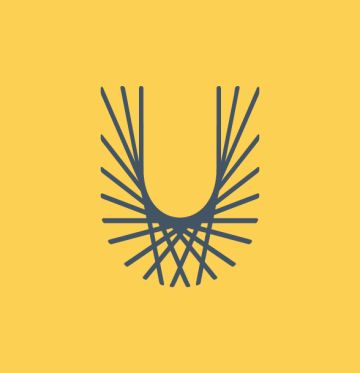Management

What is the Course about?
Business touches on almost every aspect of modern human society and careers in business are diverse and often highly paid. At undergraduate level students can gain a foundation in many of these aspects of the business world, before choosing a specialisation.
This course is one of the departments common entry courses. Introductory business and more specialised taster business modules are studied in Years 1 & 2 of these common entry courses. This gives you the flexibility to choose your stream at the end of Year 2 and then specialise in your chosen stream in Years 3 & 4.
In the Business Management option, Year 3 students will study specialist subjects in more detail including: Business Research Methods; Organisational Behaviour; Operations Management; Business Finance; International Business and more. Additional specialist subjects can be chosen depending on the student's area of interest.
Is this Course for you?
The breadth and depth of knowledge and skills you acquire on this course will give you a competitive advantage over other graduates whose knowledge is more narrowly focused.
By studying Management, you will develop your team work and communication skills, which are both important qualities for successful leadership. Whatever you end up doing - starting your own business, working in industry or the public sector - the ability to be a good team player and to build relationships and influence others will be essential.
Finally, one of the biggest benefits of studying Management is the sheer variety of career choices available. You can apply for jobs in marketing, human resources, finance, operations, you can start your own business - every organisation depends on capable and committed employees and managers.
By studying for the Bachelor of Business (Hons) in Business Management, you immediately enhance your career prospects for life.
Special Features:
- Maximum flexibility - area of specialism only has to be confirmed after Year 2
- Semester long work placement in Year 3 provides an opportunity to develop skills further in an industry setting.
- Opportunity to study abroad for a semester in Year 3.
- Choosing modules that meet the Teaching Council's entry requirements, may allow students to pursue a career in post primary teaching.
- Exit Awards: Higher Certificate in Business (NFQ Level 6) after Year 2 or Bachelor of Business in Management (NFQ Level 7) after Year 3.
Year 1
| Semester 1 | Semester 2 |
|---|---|
| Business Financial Accounting 1 (M) | Business Financial Accounting 2 (M) |
| Communications and Academic Writing (M) | Data Analysis for Business 1 (M) |
| Microeconomics (M) | Macroeconomics (M) |
| IT for Business 1 (M) | Management in Action (M) |
| An Introduction to Management Theory (M) | Business Psychology 1 (M) |
| Quantitative Techniques 1 (M) | Quantitative Techniques 2 (M) |
M is a mandatory subject - E is an elective subject
Year 2
| Semester 3 | Semester 4 |
|---|---|
| Business Cost Accounting (M) | Business Management Accounting (M) |
| Data Analysis for Business 2 (M) | Macroeconomy of Ireland (M) |
| Business Law 1 (M) | Business Law 2 (M) |
| Human Resource Management 1 (M) | Supply Chain Management (M) |
| Introduction to Marketing (M) | Contemporary Marketing Practice (M) |
| Business Psychology 2 (E) | Intermediate Financial Accounting 2 (E) |
| Intermediate Financial Accounting 1 (E) | Human Resource Management 2 (E) |
| IT for Business 2 (E) |
M is a mandatory subject - E is an elective subject
Year 3
| Semester 5 | Semester 6 |
|---|---|
| Organisational Behaviour 1 (M) | Work Placement (E) |
| Business Finance (M) | Study Semester Abroad (E) |
| Operations Management for Business (M) | Business Internship Project (E) |
| Strategic Service and CX Excellence (E) | Corporate Finance (E) |
| Business Information Systems 1 (E) | Organisational Behaviour 2 (E) |
| Managerial Economics (E) | Business Information Systems 3 (E) |
| Purchasing and Supplier Management (E) | Enterprise Development II (E) |
| Business English 1 (E) | Global Supply Chain Management (E) |
| People Management Functions (E) | New Product Innovation (E) |
| Contemporary Issues in HRM (E) | Marketing for Services (E) |
| The Global Economy 2 (E) | |
| Business English 2 (E) |
M is a mandatory subject - E is an elective subject
Year 4
| Semester 7 | Semester 8 |
|---|---|
| Strategic Analysis (M) | Dissertation and Research Methods (M) |
| The Global Economy 1 (M) | Corporate Governance - Private Companies (M) |
| International Business (M) | Strategic Positioning (M) |
| Strategic Financial Management (M) | Corporate Social Responsibility (E) |
| Business Information Systems 2 (E) | The Global Economy 2 (E) |
| Industrial Relations 1 (E) | Corporate Finance (E) |
| Sustainable Marketing (E) | Organisational Behaviour 2 (E) |
| Enterprise Development I (E) | Industrial Relations 2 (E) |
| Global Logistics (E) | Business Information Systems 3 (E) |
| Strategic Service and CX Excellence (E) | Enterprise Development II (E) |
| Global Supply Chain Management (E) | |
| New Product Innovation (E) |
M is a mandatory subject - E is an elective subject
What are the minimum entry requirements?
2 subjects: H5
4 subjects: O6/H7
English or Irish: O6/H7
Mathematics: O6/H7
What follow-on study opportunities are available?
Graduates may apply to undertake a Research or Taught Masters at SETU or other universities.
Graduates who meet the Teaching Councils entry requirements can pursue a career in post primary teaching.
What exemptions will I receive?
-Notes
-What will I be able to do when I finish the course?
Graduates will be equipped with the knowledge, skills and competencies that are demanded in a modern business environment.
The graduate will be qualified to work in a wide range of business settings such as industry, banking, public service, financial services and service industries. The skills you develop can be transferred to many job opportunities, ranging from entry-level to managerial positions.
Related Courses
Course Leader













